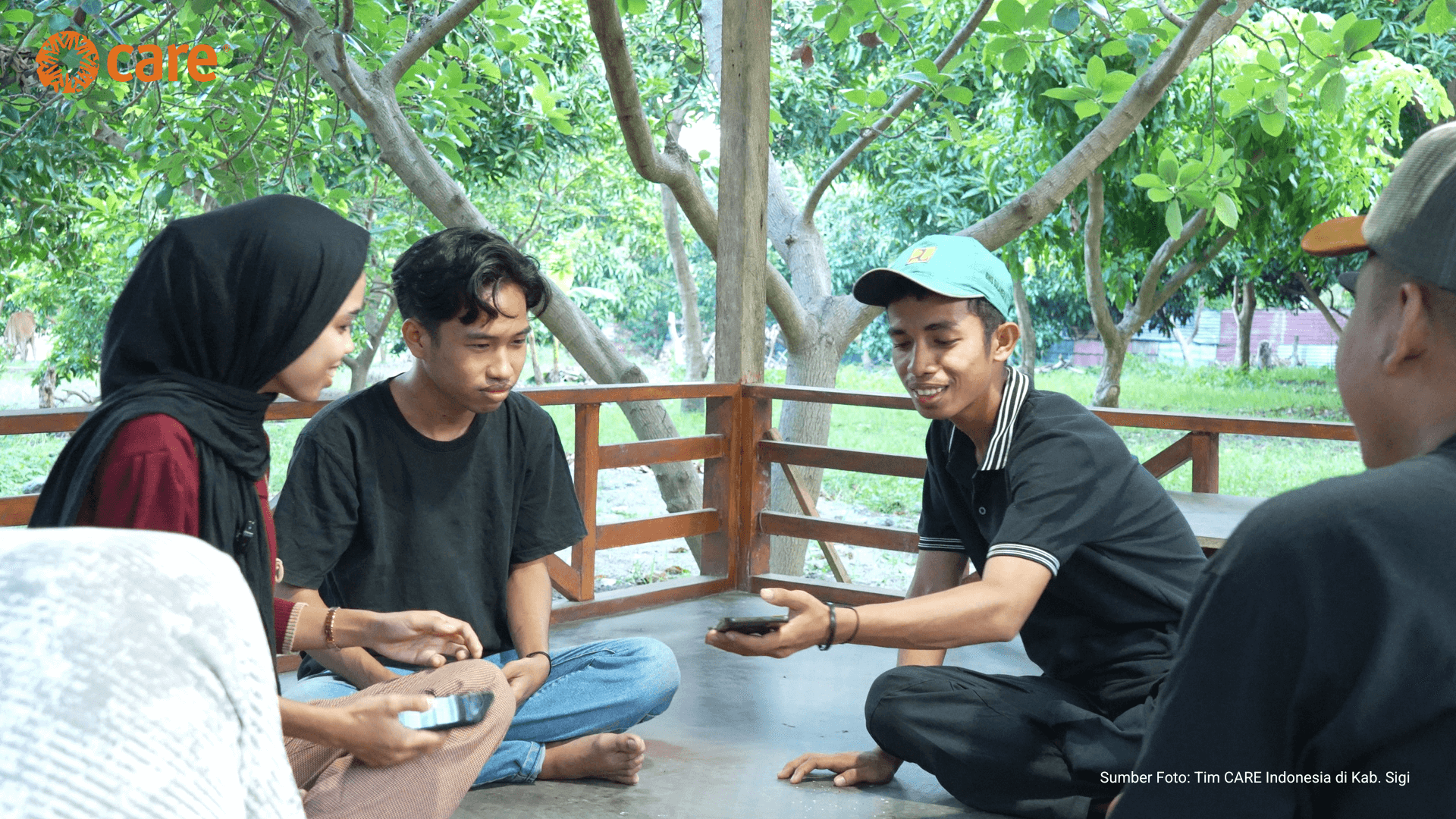According to Indonesian Youth in the 21st Century (UNFPA, 2014), young people are vital assets and key drivers of national development. However, they remain underrepresented in public participation. The study also highlights that youth empowerment, gender equality, and active participation are crucial in shaping a strong and capable generation.
For Aldyzar, a young man from Rarampadende Village, engaging his peers to be more active in local youth organizations remains a challenge. Yet, he believes this can be gradually addressed through sports activities that strengthen friendships among young people in his community.
“Football, volleyball, and sepak takraw can be good ways for young people to come together and be more active. But we also hope to be involved in more mentoring and capacity-building activities,” Aldyzar shared.
He added that the trainings he has participated in particularly on leadership, gender equality, and communication have been valuable learning spaces where young people from two villages could connect. Through the collaboration program between CARE Indonesia (Yayasan CARE Peduli/YCP) and KARSA Institute, supported by UN Women and funded by KOICA, he and his peers also learned how to use social media as a tool for collaboration and to spread positive messages of togetherness.
“We’re really happy to gather here and learn together, since we rarely have opportunities like this. We also realize that young people today are very close to social media, so youth from Pesaku and Rarampadende Villages collaborated to create content together,” he said.
According to Siti Utami, Facilitator Officer at KARSA Institute, the engagement of rural youth aims to strengthen the resilience of young people and women in Sigi Distict in facing crisis situations. She explained that a recent capacity-building training involving 30 youth participants from Pesaku and Rarampadende Villages (October 7) at the Rarampadende Village Office is part of this effort.
Utami added that the active participation of young people from both villages is expected to encourage them to take on greater roles in building an inclusive and resilient community. Beyond that, the joint facilitation and training activities conducted by KARSA and CARE also aim to promote gender equality within the community.
“We hope that young people in Rarampadende and Pesaku Villages can nurture a spirit of collaboration to build a resilient community that is a safe and inclusive place for everyone,” said Utami.
Utami added that these youth empowerment efforts will continue through activities such as outdoor camping, which will strengthen relationships among youth from different villages and help them better understand potential crises and prevention strategies.
“We want young people to understand the importance of tolerance, dialogue, and social harmony; to build networks across villages through collaborative activities; to develop conflict-resolution and non-violent communication skills; and most importantly, to foster a sense of unity, mutual respect, and social responsibility among them,” Utami concluded.
Writer: Kukuh A. Tohari
Editor: Swiny Adestika


